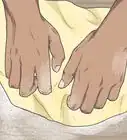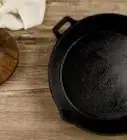This article was co-authored by Marrow Private Chefs. Marrow Private Chefs are based in Santa Rosa Beach, Florida. It is a chefs’ collaborative comprised of an ever-growing number of chefs and culinary professionals. Though regionally influenced primarily by coastal, traditional southern, cajun, and creole styles and flavors, the chefs at Marrow have a solid background in all types of cuisine with over 75 years of combined cooking experience.
There are 7 references cited in this article, which can be found at the bottom of the page.
This article has been viewed 42,612 times.
When you purchase a new griddle, you definitely want to take care of it to make it lasts a lifetime. Seasoning your griddle is an easy way to create a non-stick coat and add flavor to every dish you cook. Seasoning with oil will also prevent rust from forming on a griddle. If you already have a rusted griddle plate, make sure to remove the rust completely, and then season it to prevent it from happening again in the future.
Steps
Using Cooking Oil to Season a Griddle
-
1Clean a brand new griddle with soap and water. If you just bought a brand new griddle, it’s important to wash it with soap and water before seasoning. To do this, fill a small bucket of water and pour in some mild dish soap. Mix it together and slowly pour a small amount over your grill. Scrub the soapy mixture on the grill with a sponge, and then rinse it off with a bundle of paper towels.[1]
- Do not use soap on a used or older griddle. It may damage the surface.
-
2Remove any leftover food or debris from an older griddle. If you want to season a griddle that has already been used, make sure the surface is clean and clear of any food or debris. Use a metal spatula or scraper to remove any stuck on mess. Then wipe away any debris from the surface.[2]
- Scrape off food while the griddle is still hot. This will make it easier to remove than if the griddle is cold.
- Use table salt and hot water for extra tough food that’s hard to remove. To do this, pour 1 cup (240 mL) of salt on a warm griddle, scrub it with a towel, then remove the salt and rinse with water.
Advertisement -
3Heat the griddle on high for 10-15 minutes. Now that your griddle is clean, turn it on all the way up to the highest setting, and let it heat up for about 10-15 minutes. If this is a new griddle, wait for the surface to blacken. This will allow the oil to burn on the surface.
-
4Pour cooking oil on the griddle and spread it with a paper towel. To season a griddle, you’ll need to add oil to it. Use 1 teaspoon (4.9 mL) of oil per 11 inches (28 cm) of griddle. Cooking oils that are rich in fatty acids are best because they will bond to the griddle plate. Once your spread a good amount of oil on the griddle, use multiple layers of dry paper towel to spread it evenly on the surface.[3]
- The best oils for seasoning are olive oil, sesame oil, canola oil, vegetable oil, coconut oil, and flax oil.
- Be careful not to burn your fingers. You can use tongs or heat resistant gloves to hold the paper towel if you’re worried about the heat.
- Be sure to spread the oil around the edges and corners.
-
5Let the oil sit on the heated griddle for about 20 minutes. Let the oil sit for at least 20-30 minutes, or until it burns off the griddle top. During this time, you’ll notice smoke coming off of the surface. Once the grill stops smoking, the oil is finished burning and you can turn off the griddle and let it cool.[4]
-
6Repeat the process of adding and spreading oil at least 2 times. It takes more than just one coating of oil to properly season a griddle. To ensure that the griddle has a good nonstick plate and is fully coated, heat up the griddle again and add more oil. Repeat the previous step to add oil and spread it with a paper towel.[5]
- Do this 2 or 3 more times, or until the griddle surface is permanently dark brown.
Restoring a Rusted Griddle
-
1Turn the griddle on to high heat and let it sit for 20 minutes. Before attempting to remove rust from your griddle, turn the heat on high. This heat will loosen up any stuck-on food or corrosion before you even begin scraping. This will make it easier to remove.[6]
-
2Use a metal scraper or spatula to remove debris on the surface. Before removing the rust, make sure the griddle plate is completely free of any leftover food. If it is stuck on the surface, scrape it off with a metal scraper. You can also use a metal spatula if you don’t have a grill scraper.[7]
-
3Let the griddle cool down and begin scraping off the rust. Turn off the heat on the griddle, and then use your scraper to begin taking off that rust. You’ll need to use a lot of force to do this, as rust is not easy to remove. Scrape as much off as you can before moving on to the next step.
- Do not use any water with the scraper during this step. Water and moisture is the main cause of rust, so you don’t want to make the condition worse.
-
4Pour 4-5 tablespoons of cooking oil on the griddle and use a grill stone to scrub off the rust. Once you have scraped off as much of the rust as possible, pour some cooking oil on the griddle plate. Then, use a grill stone block to scrub all around the rusted surface. A grill stone can be found at most home improvement stores.[8]
- If you don’t have a grill stone, try using steel wool or sandpaper.
-
5Wipe the griddle with paper towels until the surface is dry. After you’ve scrubbed the rust with the grill stone, get a bundle of paper towels and wipe it until it is dry. This will further remove any rust on your griddle.
- If there’s still rust on your griddle, add more oil to the surface and then wipe again with more dry paper towels. Keep repeating this step until there is little to no residue after you wipe it with the paper towels.
Expert Q&A
-
QuestionDo I need to season a 17-inch blackstone griddle?
 Marrow Private ChefsMarrow Private Chefs are based in Santa Rosa Beach, Florida. It is a chefs’ collaborative comprised of an ever-growing number of chefs and culinary professionals. Though regionally influenced primarily by coastal, traditional southern, cajun, and creole styles and flavors, the chefs at Marrow have a solid background in all types of cuisine with over 75 years of combined cooking experience.
Marrow Private ChefsMarrow Private Chefs are based in Santa Rosa Beach, Florida. It is a chefs’ collaborative comprised of an ever-growing number of chefs and culinary professionals. Though regionally influenced primarily by coastal, traditional southern, cajun, and creole styles and flavors, the chefs at Marrow have a solid background in all types of cuisine with over 75 years of combined cooking experience.
Private Chefs Yes! Season it generously with a high smoke point oil, like avocado or flaxseed, and wipe it in with a paper towel. Use soap and water for a light clean after use, or, if need be, you can use a chemical grill cleaner or charcoal brick if it’s really dirty. Rinse with hot water, polish with lemon juice, and then season with oil again. Always season with oil at the end to prevent rusting.
Yes! Season it generously with a high smoke point oil, like avocado or flaxseed, and wipe it in with a paper towel. Use soap and water for a light clean after use, or, if need be, you can use a chemical grill cleaner or charcoal brick if it’s really dirty. Rinse with hot water, polish with lemon juice, and then season with oil again. Always season with oil at the end to prevent rusting.
Things You’ll Need
- Bucket of water
- Mild dish soap
- Cooking oil
- Paper towels
- Tongs or heat resistant gloves
- Metal scraper
- Grill stone cleaning block
References
- ↑ https://images.homedepot-static.com/catalog/pdfImages/89/895db59f-18f6-4321-8b8d-ed626ff60d17.pdf
- ↑ https://images.homedepot-static.com/catalog/pdfImages/89/895db59f-18f6-4321-8b8d-ed626ff60d17.pdf
- ↑ https://youtu.be/5DZ_V4IYvUI
- ↑ https://youtu.be/5DZ_V4IYvUI
- ↑ https://youtu.be/5DZ_V4IYvUI?t=237
- ↑ https://youtu.be/thPE2IgnSiI?t=49
- ↑ https://www.webstaurantstore.com/article/142/how-to-clean-a-griddle.html
- ↑ https://bbqbarbecuegrill.com/other/how-to-remove-rust-from-blackstone-griddle/
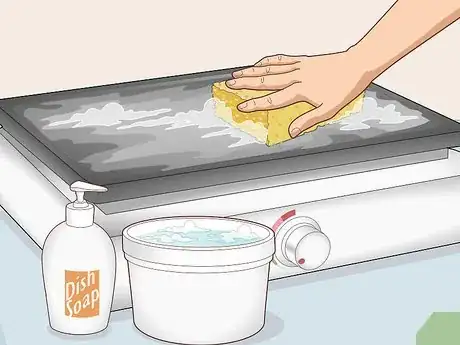
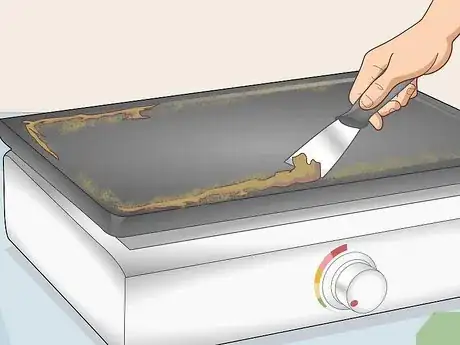
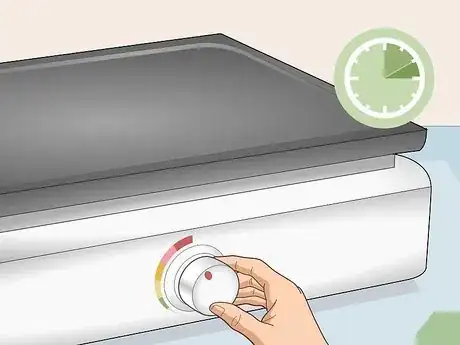
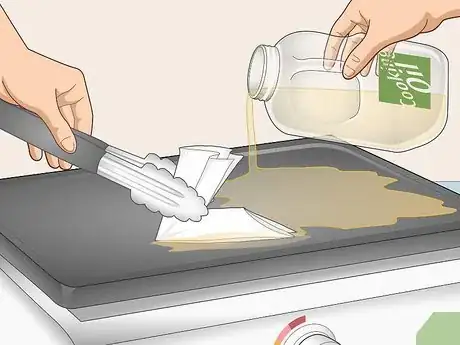
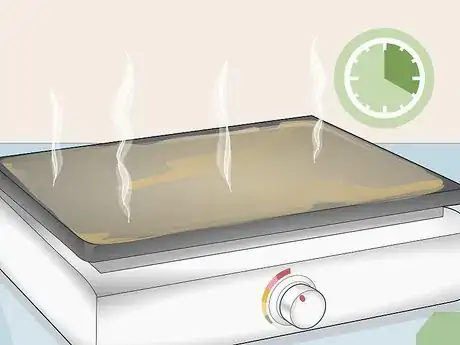
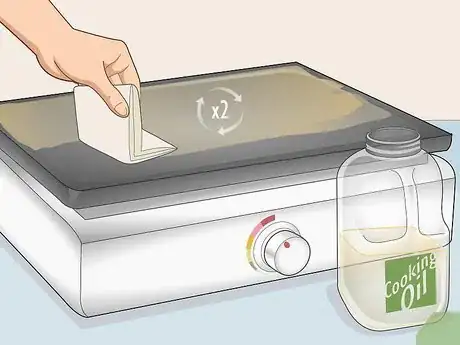
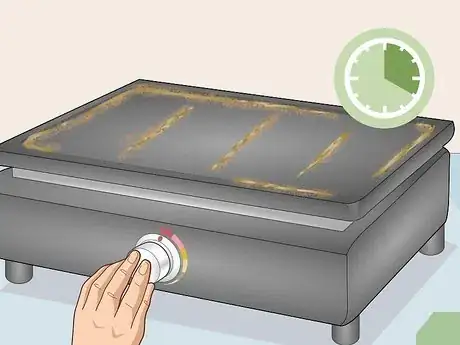
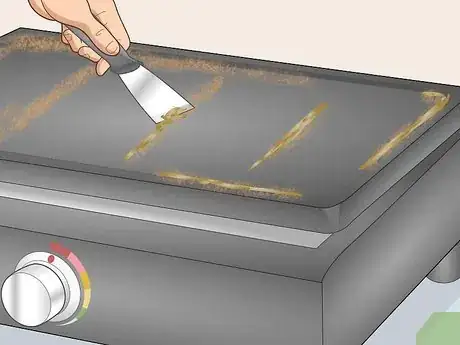
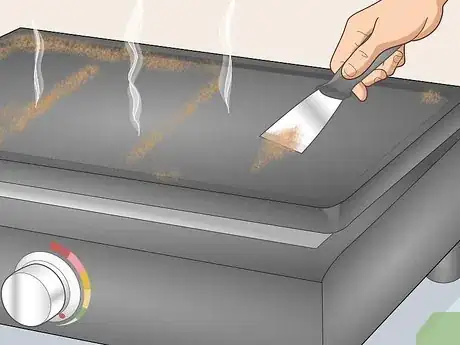
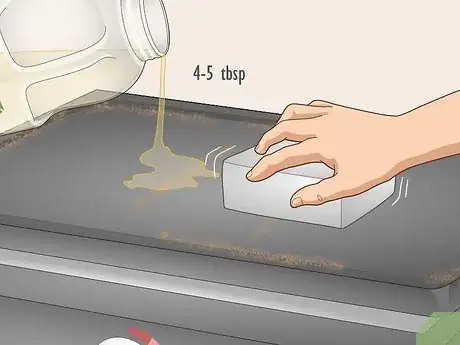
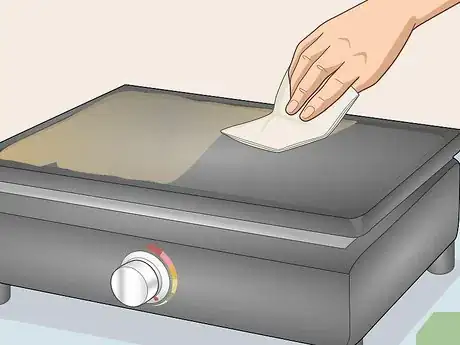
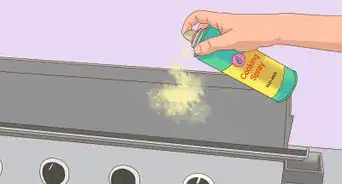
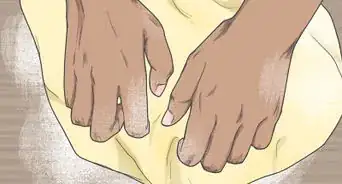
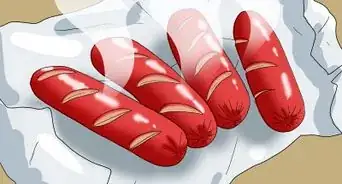
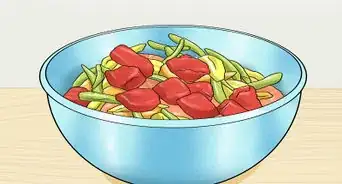
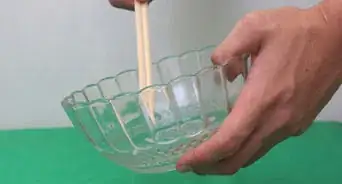
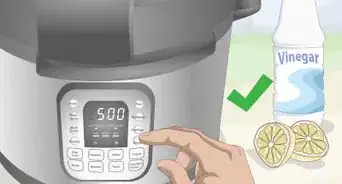








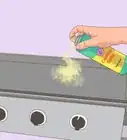
-Step-12-Version-2.webp)
